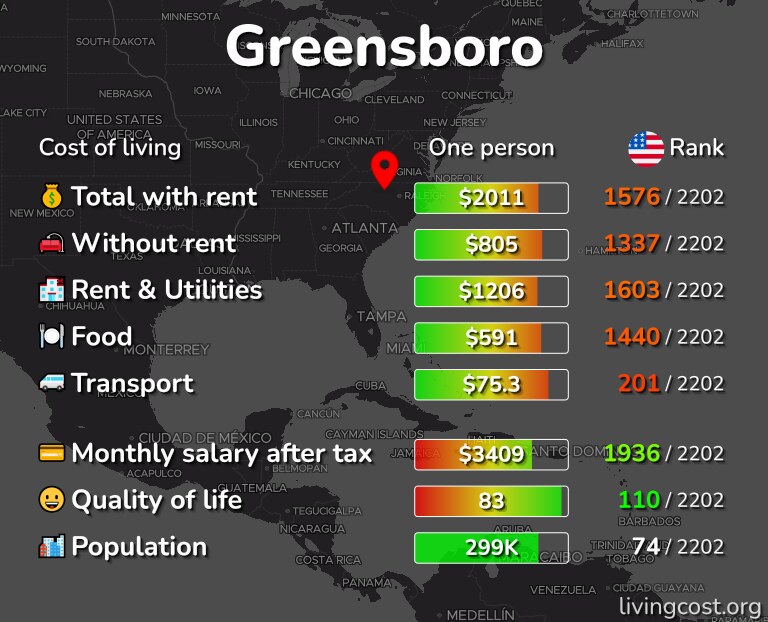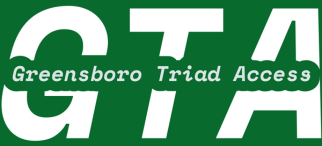
Greensboro, North Carolina, has long been considered one of the more affordable cities in the southeastern United States. But in 2025, with rising inflation and national cost increases, many are wondering: Is Greensboro’s cost of living still affordable?
Housing Costs
Housing remains one of the strongest factors keeping Greensboro affordable. The average rent for a one-bedroom apartment is around $1,136 per month, which is significantly lower than the national average of $1,625. For homebuyers, Greensboro still offers value. The median home price is $229,900, well below the national median of $338,100. This makes Greensboro attractive for first-time buyers and families looking to settle down without breaking the bank.
Food and Groceries
Grocery and food prices in Greensboro are stable and reasonably priced. A gallon of milk costs approximately $0.96, a loaf of bread is around $4.02, and a dozen eggs average $3.43. Dining out remains budget-friendly, with a meal for two at a mid-range restaurant typically costing $70. While prices have crept up slightly since 2023, they are still manageable compared to major metro areas.
Transportation
Transportation expenses in Greensboro are manageable. A monthly public transportation pass is about $57.70, and gas prices hover around $0.83 per litre. For those who drive, the total yearly cost of transportation—including car payments, insurance, fuel, and maintenance—averages around $5,447. These costs are below average compared to larger cities in North Carolina, like Charlotte or Raleigh.
Healthcare Costs
Healthcare in Greensboro is slightly above the national average, with an estimated 5% increase compared to U.S. norms. A typical doctor’s visit costs around $87.30. While not unaffordable, medical costs are something residents should factor into their monthly budgets.
Utilities and Internet
Utilities are competitively priced. The average monthly bill for electricity, heating, water, and trash services is about $149. Internet service, depending on the provider and speed, averages $73.50 per month. These figures keep overall living expenses in Greensboro relatively modest.
Living Wage and Income
To live comfortably in Greensboro, a single adult needs to earn about $43,000 per year, or $20.71 per hour, according to the MIT Living Wage Calculator. The city’s median household income is approximately $58,884, indicating that many residents can support a modest but stable lifestyle.
Overall Affordability
Greensboro’s cost of living index stands at 84.2, meaning it is 15.8% below the U.S. average. This is a strong indicator that Greensboro continues to offer one of the most affordable urban lifestyles in North Carolina. Between lower housing costs, fair utility rates, and manageable transportation and food expenses, the city remains a solid affordable choice.

Final Thoughts
In 2025, Greensboro is still an affordable place to live. Rising costs across the country have affected everyone, but Greensboro remains ahead of the curve by maintaining a cost structure that supports working families, students, and retirees alike. If you’re looking for a place where your money stretches further while still enjoying a comfortable standard of living, Greensboro continues to deliver.
Join our growing community by subscribing to our platforms and becoming a member of the Greensboro Triad Access Facebook group. Be part of a community that values meaningful connections, exciting opportunities, and powerful storytelling. Together, let’s stay informed, inspired, and empowered!
Best Regards,
